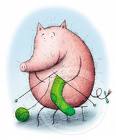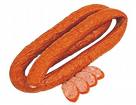Sweets will spice up you… death!

Too much glucose in the diet accelerates cell aging. The latest Canadian research explains why this is so – informs the letter “PLoS Genetics”. Aging is a complex phenomenon, and mechanisms, which are responsible for them are still insufficiently known. Animal studies show, that excess calories in the diet accelerate aging. E.g, the life span of mice on a half-calorie diet may increase by 40 proc. According to one of the theories proposed to explain this regularity, the by-products of converting glucose into energy would be responsible for aging – the so-called. free radicals. When we eat less, we deliver less glucose to ourselves, and what follows, less free radicals are produced in our cells, aging processes are slower. To better understand the impact of a low-calorie diet on life expectancy, researchers at the University of Montreal conducted experiments on yeast, which are a model organism for studying biochemical processes in cells. The cells of these fungi are in many respects similar to the cells of humans and other mammals – for example, they age similarly, and in addition, they are easy to study. The researchers confirmed, that restricting the glucose content in the diet prolonged the life of the yeast. To their surprise, however, it turned out, that yeast, who consumed normal amounts of glucose, but they had the Git3 / PKA gene turned off, which is responsible for sensing this sugar in their cells, they also lived longer and produced fewer free radicals.
According to the authors of the work, it proves it, that the Git3 / PKA gene is involved in the regulation of the aging process. “Our research will help to better understand the relationship between too much sweetness in the diet of modern people, and the increase in the incidence of diseases typical of old age” – comments Prof.. louis rokeach. The researcher counts, that his team's work opens the door to the development of new therapies for aging-related diseases.








